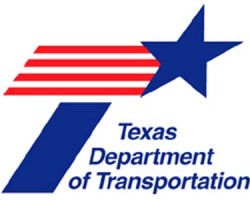STATE LAUNCHES RAIL STUDY TO SEE IF PASSENGER TRAINS FROM OKLAHOMA TO TEXAS CAN PROVIDE CONGESTION RELIEF FOR DRIVERS
Written by Post Public Information Representative, Oct 15, 2012, 0 Comments
Courtesy TxDot,
Study explores options for passenger rail service between Oklahoma City and South Texas
 AUSTIN, TX — The idea of using rail as an option to address highway congestion moves one step closer to reality this month as the Texas Department of Transportation kicks off a two-year study to explore the possibility of passenger rail service from Oklahoma City to South Texas.
AUSTIN, TX — The idea of using rail as an option to address highway congestion moves one step closer to reality this month as the Texas Department of Transportation kicks off a two-year study to explore the possibility of passenger rail service from Oklahoma City to South Texas.
The study will examine best possible options for the development of passenger trains that will connect metropolitan areas such as Dallas/Fort Worth, Austin, and San Antonio, and compare different types of services such as existing Amtrak routes to a new high-speed rail system. The study will also explore funding options such as the potential for public-private partnerships.
“To truly address congestion, we must look at more than just building and expanding highways,” said John Barton TxDOT deputy executive director & chief engineer. “Passenger rail is a strategic component for the future of Texas transportation.”
The $14 million study is partially funded through a $5.6 million grant from the Federal Railroad Administration’s High Speed and Intercity Passenger Rail program. TxDOT is providing a 20 percent match.
“Rail has always been considered a good way to address congestion,” said Bill Glavin TxDOT’s rail division director executive director. “This study will help define the path forward for passenger rail along a heavily traveled corridor and provide the citizens of Texas with an alternative to congested highways.”
TxDOT has already held public meetings and met with citizens along the corridor to seek input on this study. Components of the study will include a prioritized business and financial plan to implement services identified through public involvement, and general environmental studies.
If built, the Oklahoma City to South Texas line could provide the foundation for a high-speed or higher performance rail system that would eventually connect all the major metropolitan areas in Texas.



